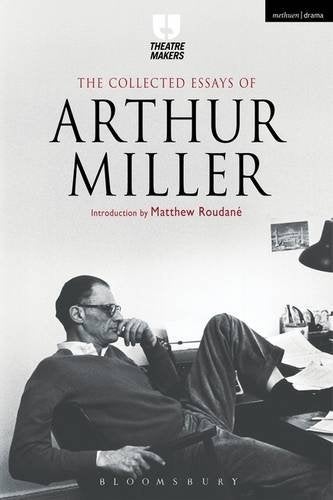The Collected Essays of Arthur Miller, Edited by Matthew Roudané - book review
Bloomsbury Methuen Drama - £30

In 1964 Arthur Miller – The Crucible, Death of a Salesman, View from the Bridge and more firmly under his belt – was in the Frankfurt courtroom where 22 SS men were on trial for murdering inmates at Auschwitz. An acute, commendably dispassionate observer, he notes a week later that “once the jack-booted masters of a barbed wire world”, 20 of these men are now “middle-aged Germans in business suits”. Only two stand out. One has “imbecile stupidity written on his face” and the other has frightening, “free-floating violence” in his eyes. Jewish by birth, Miller is interested in the tension between “individual conscience and responsibility in the face of inhuman orders”.
A criminal trial is, of course, a form of public theatre, Miller’s main metier. He is interesting, for instance, on the modern practice of presenting adapted – that is, abridged, shortened or otherwise reduced – works of art. “A fine work is wedded to the time it takes to perform or read it,” he asserts firmly in 1959. “The illusion is overpowering among us that it is possible to reduce everything to a painless capsule without losing its meaning.” Almost 60 years on, I’m thankful Miller isn’t around to see the number of one-hour Shakespeare versions that are staged these days for young audiences. He’d have called them “mutilated distortions”.
Elsewhere in this huge book – essays from 1944 to 2000 to mark the centenary of his birth – we find Miller on staging plays. In a 1985 interview with Matthew Roudané, he says, with a certain arrogance, that textual changes made during the rehearsal process are usually to the detriment of the play. The problem is only three and a half weeks to prepare a show and too little money in the budget. He also talks of working with “less than capable” directors and actors who can’t sing in pitch. “We have a very poor theatre now,” he declares.
The Crucible did not attract much positive criticism in the first instance. Later, once the Macarthyism it attacks had subsided, it acquired, Miller reflects, a timeless status in its analysis of “individual conscience as the ultimate defence against a tyrannical authority” and it became Miller’s most successful play. That was 1972 and we’re almost back in war crimes trial territory and a key Miller theme.
Some of his assertions stop you in your tracks. Miller argues that all delinquency is rooted in boredom. He comments cheerfully that “England is not a hysterical country” (that’s a relief) and, writing in 2000, that the British taxpayer has “long subsidised Broadway”.
You can dip in or take the essays chronologically. The book repays both readings. The first offers impressions of a playwright and human being at all levels – including a powerful response to his house burning down in 1984 – and the second offers a sense of ongoing narrative history from the viewpoint of a man Roudané calls “an engaged and engaging public intellectual”. What Miller isn’t is warm – or even especially likeable – but then, that isn’t the intention.
Subscribe to Independent Premium to bookmark this article
Want to bookmark your favourite articles and stories to read or reference later? Start your Independent Premium subscription today.

Join our commenting forum
Join thought-provoking conversations, follow other Independent readers and see their replies